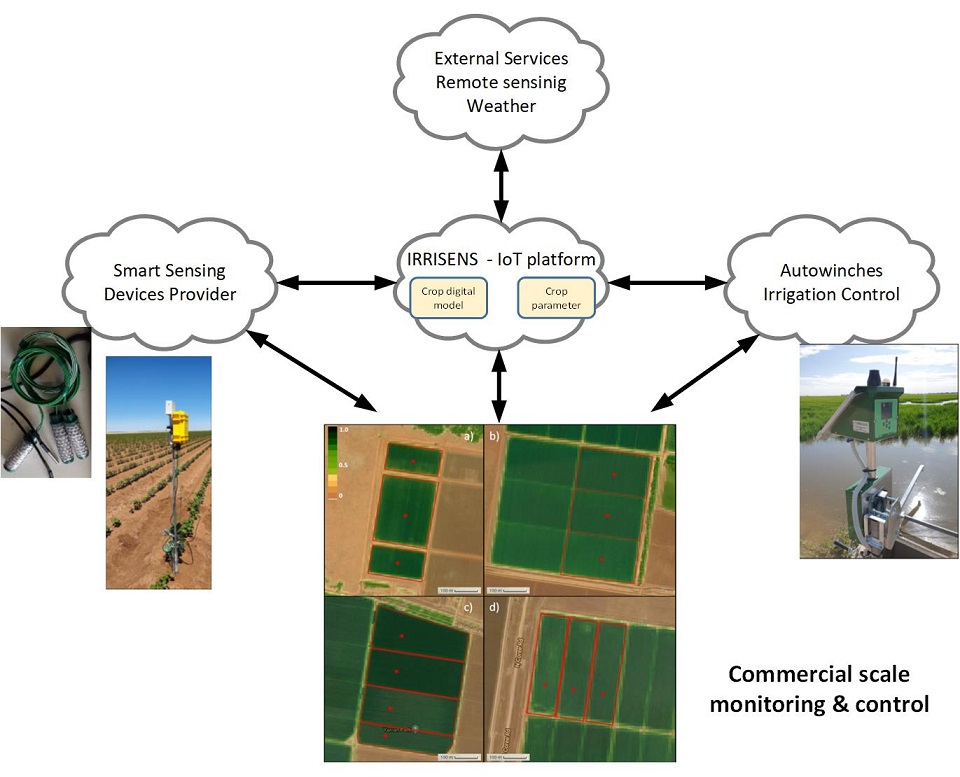Research has shown the multitude of applications that IoT, cloud computing and forecast technologies present in every sector. In agriculture, one application is the monitoring of factors that influence crop development to assist in making crop management decisions. Research on the application of such technologies in agriculture has been mainly conducted at small experimental sites or under controlled conditions. This research has provided relevant insights and guidelines for the use of different types of sensors, application of a multitude of algorithms to forecast relevant parameters as well as architectural approaches of IoT platforms. However, research on the implementation of IoT platforms at the commercial scale is needed to identify platform requirements to properly function under such conditions. This article evaluates an IoT platform (IRRISENS) based on fully replicable microservices used to sense soil, crop and atmosphere parameters, interact with third party cloud services, planning and scheduling irrigation as well as control of irrigation water control devices. The proposed IoT platform was evaluated during one growing season at four commercial scale farms on two different broadacre irrigated crops with very different water management requirements (rice and cotton). Five main requirements for IoT platforms to be used in agriculture at commercial scale were identified from implementing IRRISENS in rice and cotton production: scalability, flexibility, heterogeneity, robustness to failure and security. The platform addressed all these requirements. The results showed that the microservice approach followed in the platform is robust against both intermittent and critical failures in the field that could occur in any of the monitored sites. Further, processing or storage overload caused for any reason at one farm did not affect the performance of the platform regarding the other monitored farms. This paper also discusses how the microservice approach can address the data heterogeneity issue when crops with different management requirements are monitored. Since there are no shared microservices among farms, the IoT platform proposed here also provides data isolation maintaining data confidentiality for each user, which is relevant in a commercial farm scenario.

